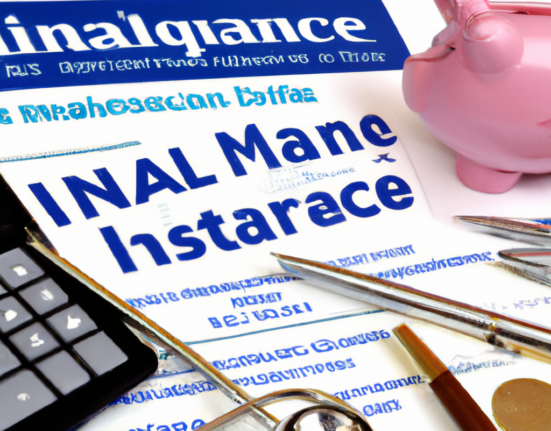By Hon. Susan V. Hamilton, Former Assistant Secretary and Deputy Commissioner, California Workers’ Compensation Appeals Board
Appeals Board panel decisions that rescind a WCJ’s decision and return the case to the trial level for further proceedings and decision generally are not featured in this e-newsletter. The rationale is logical—the dispute may resolve on remand and/or the new decision following remand is unremarkable. But there are always exceptions. The recent panel decision in Rose v. Los Angeles Dodgers, 2024 Cal. Wrk. Comp. P.D. LEXIS 77 (Rose) is one of those rare exceptions. The panel’s 31-page opinion is especially noteworthy because it addresses several novel and/or developing issues in workers’ compensation law and sheds light on how panel members view those issues. For example, one matter in question is the level of cognitive impairment sufficient to trigger the presumption of permanent total disability under Lab. Code, § 4662(a)(4). A related issue is the meaning of the phrase, “permanent total disability shall be determined in accordance with the fact” (Lab. Code, § 4662(b)). Another question is the medical evidence necessary to justify reservation of jurisdiction beyond five years from the date of injury to award additional permanent disability in the case of a progressive, insidious disease. Still another consequential matter is the admissibility of self-procured medical reports. Rose discusses all those issues and several more. This article will focus its discussion on the specific issues identified above.
THE FACTS
Michael Rose (applicant) was employed as a professional baseball player. He began his pro career in 1995 with the Houston Astros and was employed continuously thereafter by a host of major league teams, including the Los Angeles Dodgers from December 6, 2004, to October 15, 2005, and again from February 2, 2009, to November 9, 2009. Applicant ended his career playing for the Edmonton Capitals from August 14, 2010, to September 2, 2010.
On September 16, 2013, an Application for Adjudication of Claim was filed on applicant’s behalf, alleging cumulative injury to his head, eyes, jaw, neck, back, both shoulders, both elbows, both wrists, both hands, all fingers, both hips, both knees, both ankles, both feet, all toes, psyche, internal injuries, ears, nose and throat, reproductive system, neurological system, and sleep dysfunction. Later he asserted a claim of injury to his head/brain.
Defendant denied all liability for injury on December 17, 2013, and did not provide any medical treatment. Thereafter, applicant selected Dr. Michael Einbund, M.D. as his treating physician. Dr. Einbund conducted a clinical examination of applicant and issued a report in which he noted that several presenting symptoms were outside of his medical expertise and requested authorization to make referrals to other physicians specializing in neurology, internal medicine, and psychiatry. Defendant did not authorize treatment and subsequently, applicant began to treat with Dr. Greenzang, Dr. Nudleman, Dr. Berman, and Dr. Reynolds on a self-procured basis.
A trial was held on the disputed claim. Among the issues at trial were injury AOE/COE, parts of the body injured, earnings, the date of injury for purposes of Lab. Code, § 5412, the permanent and stationary date, permanent disability, apportionment, applicant’s entitlement to the presumption of permanent total disability under Lab. Code, § 4662(a) and (b), the statute of limitations, and defendant’s proportional share of liability.
Following trial, the WCJ issued a Findings and Award (F&A), finding injury AOE/COE to the neck, back, both shoulders, right thumb, right middle finger, both hips, both ears, and in the form of traumatic brain injury and post-traumatic head syndrome, resulting in injury to the psyche and a sleep disorder. The F&A also found the date of injury under Lab. Code, § 5412 to be September 16, 2013, and that applicant’s claim is not barred by the one-year statute of limitations. The F&A also found that applicant sustained permanent disability of 64% and was not entitled to the presumption of permanent total disability. Defendant’s pro-rata liability was found to be 63.5%,
Both applicant and defendant timely petitioned for reconsideration. Applicant claimed that he sustained an injury to the brain resulting in permanent mental incapacity under Lab. Code, § 4662(a)(4). Alternatively, applicant contended that he is totally and permanently disabled according to the fact under Lab. Code, § 4662(b). Applicant also argued that the injury to his brain is a progressive and insidious disease entitling him to an on-going award of temporary disability with jurisdiction reserved to the WCAB for a final determination of permanent disability. Applicant contested the WCJ’s finding as to the date of injury, arguing that the date should be based on his first knowledge of cumulative injury to the brain, which either occurred when he first received the results of his brain scan, or several months later when Dr. Nudleman’s issued a final report. Applicant also asserted error on the part of the WCJ for not admitting two medical reports—one from Dr. Greenzang and the other from Dr. Nudleman—that were referenced in the pre-trial conference statement. Although applicant raised several other issues, they are not germane to the issues addressed in this article and will be omitted from discussion.
Defendant’s petition for reconsideration contended that its pro-rata share of liability for any award should be limited to 16% based on applicant’s actual days of injurious exposure with the Los Angeles Dodgers. Defendant also challenged the admissibility of the reports of Dr. Nudleman, Dr. Greenzang, and Dr. Berman, arguing that their reports were inadmissible medical-legal reports under the guise of treating physician reports. Additionally, defendant argued that the medical reporting of Dr. Greenzang is not substantial evidence because the brain studies he conducted were inconclusive and do not support a finding that applicant sustained a catastrophic brain injury.
An Appeals Board panel granted reconsideration and, in its Opinion, and Decision after Reconsideration, rescinded the F&A and substituted new findings of fact that applicant sustained compensable injury to his neck, back, both shoulders, right thumb, right middle finger, both hips, ears, and in the form of traumatic brain injury and post-traumatic head syndrome and needs further medical treatment. It deferred the issue of injury to the psyche and injury in the form of sleep disorder. It also found the date of injury was September 16, 2013, and the claim is not barred by Lab. Code, § 5404. It then deferred the issues of earnings, temporary disability, permanent and stationary date, permanent disability, apportionment, attorney fees, defendant’s liability for the Award under Lab. Code, 5500.5 and the period of liability under that statute, and whether applicant sustained an insidious and progressive disease warranting the reservation of jurisdiction by the Appeals Board. The case was returned to the WCJ for further proceedings and decision.
THE PANEL’S ANALYSIS
Admissibility of applicant’s self-procured medical reports
The panel wastes no time in disposing of defendant’s claim that the WCJ erred in admitting the medical reports of Dr. Nudleman, Dr. Greenzang and Dr. Berman on the basis that they were medical-legal reports obtained in violation of Lab. Code, §§ 4062.2, 4600. The discussion begins with two lengthy quotes from the Supreme Court’s opinion in Valdez v. Workers’ Comp. Appeals Bd. (2013) 57 Cal. 4th 1231, 78 Cal. Comp. Cases 1209. The first quote is the Court’s express acknowledgement that the medical-legal evaluation process in Lab. Code, § 4060 et seq. does not impede the ability of a party to obtain a medical-legal evaluation or consultation at their own expense or impact the admissibility of such evaluation in proceedings before the WCAB (Lab. Code, § 4064(d). The second quote reminds that when Lab. Code, § 4060 et seq. were enacted, the legislature did not limit an employee’s right to seek treatment from a physician of their own choosing at their own expense or bar those physician’s reports from admissibility in workers’ compensation proceedings, referencing Lab. Code, § 4605.
Next, the panel includes two quotations from the Court of Appeal’s opinion in Batten v. Workers’ Comp. Appeals Bd. (2015) 241 Cal. App. 4th 1009, 80 Cal. Comp. Cases 1256. Those quotes explain that the term, “consulting physician,” in Lab. Code, § 4605 means a physician who is consulted for the purposes of discussing appropriate medical treatment, not a physician who is consulted for the sole purpose of addressing medical-legal issues to rebut a panel QME. The second quote goes on to explain that when an employee consults a physician at their own expense while seeking medical treatment, the physician’s reports are admissible, referencing Lab. Code, §§ 4605, 4061(i).
The panel then devotes three additional pages of discussion that further elucidate their rationale for rejecting defendant’s claim that the aforementioned medical reports are inadmissible. The panel points out that defendant denied all liability for applicant’s claim and did not provide any medical treatment. Following the denial, applicant selected Dr. Einbund to be his treating physician at applicant’s own expense. Dr Einbund examined applicant and reported on his findings. In the report of his initial examination of applicant, Dr. Einbund noted that applicant presented with some symptoms that were outside of his medical expertise and requested authorization to refer applicant to physicians with specialization in neurology, psychiatry, and internal medicine. He subsequently referred applicant to Dr. Nudleman, Dr. Greenzang, Dr. Berman and Dr. Reynolds. Applicant then self-procured treatment from these physicians.
The panel then quotes that portion of the WCJ’s Report and Recommendation on Petition for Reconsideration (Report), in which the WCJ summarizes applicant’s testimony regarding the treatment he received from these physicians as well as the fact that applicant found the treatment provided to be helpful.
Next, the panel addresses defendant’s claim that applicant should have selected treating physicians closer to his residence. As regards this point, the panel states its agreement with the WCJ that defendant failed to meet its burden of proof that treatment with the treating physicians selected by applicant was unreasonable.
The panel includes a lengthy page and one-half quote from the WCJ’s Report that explains the role of a treating physician and provides detailed rationale for the conclusion that Dr. Einbund, Dr. Nudleman, and Dr. Greenzang each meet that definition. Not only does the panel agree with the WCJ’s conclusion, but it also endorses the WCJ’s explanation for rejecting defendant’s contention that these physicians were medical-legal consultants acting in the guise of treating physicians. In this regard, the panel agrees with the WCJ that Lab. Code, §§ 4060 and 4061 permit treating physicians to prepare medical-legal evaluations.
The panel concludes its analysis with two additional observations. Foremost, that the authority offered by defendant in support of its contention is misplaced because both cited cases involved admitted injuries. The next observation is that at trial, defendant did not raise the issue of admissibility of the reporting of Dr. Einbund, Dr. Nudleman, Dr. Greenzang, Dr. Berman, or Dr. Reynolds, nor did it specify that issue as one submitted for decision.
The Presumption of Permanent Total Disability Under Lab. Code, § 4662(a)(4)
As noted in the factual statement above, the F&A did not find presumptive permanent total disability in this case. Rather than affirm that finding, the panel expressly deferred the issue pending further development of the record. Notwithstanding the deferral, the panel offers a discussion of presumptive disability under Lab. Code, § 4662(a)(4) that is most instructive.
First, the panel discusses the reasoning behind the WCJ’s finding that applicant is not entitled to the statutory presumption of permanent total disability. The WCJ looked to a panel decision, Fraser v. Geil Enterprises, 2016 Cal. Wrk. Comp. P.D. LEXIS 454, where another panel discussed the history of Lab. Code, § 4662(a)(4) and held that despite changes in the language of the statute, the presumption still requires a showing of a severe, pervasive cognitive injury. By way of background, prior to the 2007 amendment to the statute, it provided for a presumption of permanent total disability where an injury to the brain resulted in incurable imbecility or insanity (Postal Tel. Cable Co. v. Industrial Acci. Com. (1931) 213 Cal. 544). In 2007, the statute was amended and the phrase, “incurable imbecility” was replaced with “incurable mental incapacity.” In 2014 the statute was amended again and the phrase, “incurable mental incapacity,” became “permanent mental incapacity” and the word, “insanity,” was deleted.
The panel then considers applicant’s claim that his diagnosis of a brain injury resulting in dementia is sufficient to trigger the presumption. It discusses a portion of the WCJ’s Report in which the WCJ concedes that applicant sustained an injury to his brain but concludes that the injury resulted in partial or limited cognitive impairment, not severe cognitive impairment. In that regard, the WCJ relied on Winningham v. Workers’ Comp. Appeals Bd. (2016) 81 Cal. Comp. Cases 828 (writ den.), where a panel held that in view of the legislative history of the statute, a brain injury resulting in partial cognitive impairment is not sufficient to raise the presumption.
What level of impairment is synonymous with “permanent mental incapacity”? The opinion reviews caselaw that addresses that issue. The first is Sherry v. Connelly’s Fine Furniture, 2018 Cal. Wrk. Comp. P.D. LEXIS 562 (Board panel decision), in which an Appeals Board panel held that applicant’s orthopedic and psychiatric injuries did not include an organic brain syndrome that would trigger application of the presumption. Next, is Enriquez v. County of Santa Barbara, 2014 Cal. Wrk. Comp. P.D. LEXIS 375 (Board panel decision), where another panel held the effects of an injury to the psyche coupled with the effects of psychotropic medications did not trigger application of the presumption. Then the opinion references two case in which the presumption was found to apply. The first is Hill v. Securitas Sec. Servs. v. United States, 2012 Cal. Wrk. Comp. P.D. LEXIS 294 (Board panel decision), where a panel held that the presumption applied based on the opinions of the QME that applicant was totally and completely neurocognitively disabled without any appreciable chance of becoming functional. The second is Villegas v. Aadlen Bros. Auto Wrecking, 2015 Cal. Wrk. Comp. P.D. LEXIS 334 (Board panel decision). In Villegas a panel affirmed the WCJ’s finding of permanent total disability based on medical evidence that applicant’s impairments were so profound as to require appointment of a conservator, and where his treating physician recommended inpatient placement in a nursing home.
In summary, the panel observes that application of Lab. Code, § 4662(a)(4) requires a showing of an injury to the brain resulting in profound cognitive impairment, noting that the opinions of medical-legal evaluators are highly relevant in any such determination.
Presumption of Permanent Total Disability According to the Fact
The panel wastes no time in rejecting applicant’s claim that his disability should be presumed permanent and total according to the fact under Lab. Code, § 4662(b). Likewise, their opinion does not waste words, either. In a terse two-sentence paragraph the panel references Department of Corrections & Rehabilitation (Fitzpatrick) v. Workers’ Comp. Appeals Bd. (2018) 27 Cal. App. 5th 607, 83 Cal. Comp. Cases 1680, and acknowledges Fitzpatrick’s holding that Lab. Code, § 4662(b) does not provide a separate path to a finding of permanent and total disability; rather, that Lab. Code, § 4660 governs how a finding and award of permanent total disability may be made in accordance with the fact.
Did Applicant Sustain an Insidious and Progressive Disease Warranting Reservation of Jurisdiction?
The final issue examined in this article is applicant’s claim that his injury caused chronic traumatic encephalopathy (CTE), and because CTE is an insidious and progressive disease, he should receive an interim award of temporary total disability with WCAB jurisdiction reserved for final determination of permanent disability.
The opinion presents a concise and straightforward review of the significance of an injury that is insidious and progressive. It begins that discussion by explaining that generally the jurisdiction of the WCAB is limited to five years from the date of injury. Lab. Code, § 5410 authorizes the WCAB’s continuing jurisdiction within a period of five years from the date of injury upon the grounds that the original injury caused new and further disability. Lab. Code, § 5804 gives the WCAB continuing (and limited) jurisdiction over awards made but prohibits an award of compensation from being rescinded, altered, or amended after five years from the date of injury except upon a petition filed by a party in interest within the five-year period.
The opinion then acknowledges a limited exception to the statutes discussed above, based on the Supreme Court’s decision in General Foundry Serv. v. Workers’ Comp. Appeals Bd. (Jackson) (1986) 42 Cal. 3d 331, 51 Cal. Comp. Cases 375. Jackson held that in cases where the injury was in the form of an insidious and progressive disease, the WCAB could make an interim assessment of the disability and order payments to be made on an interim basis and reserve its jurisdiction for a final determination when the injured worker’s condition becomes permanent and stationary, or the resulting permanent disability is total and further deterioration would be irrelevant for rating.
After the decision in Jackson, the Appeals Board issued an en banc opinion that defines the contours of an “insidious and progressive disease.” The case, Ruffin v. Olson Glass Co. (1987) 52 Cal. Comp. Cases 335 (Appeals Board en banc), held that an insidious and progressive disease is (1) caused by a remote and undramatic work exposure that is likely to be undetected at the time or, if detected, its significance is unappreciated; (2) is a disease process that worsens over time but at a rate so gradual that it becomes well-established before becoming apparent; and (3) the disease has a long period of latency between exposure and the onset of symptoms. Using this paradigm, the Appeals Board has found hepatitis, cancer, coccidiomycosis (valley fever), and CTE to meet the definition of an insidious and progressive disease.
While CTE has been held to be an insidious and progressive disease (Oliver v. Tampa Bay Bucaneers, 2022 Cal. Wrk. Comp. P.D. LEXIS 251), the panel notes that only applicant’s treating psychotherapist suggests that applicant has a progressive brain disease. Dr. Nudleman, the treating neurologist did not diagnose CTE or discuss the potential for progression of any such brain injury disease process. Finding an absence of substantial medical evidence to support applicant’s claim that jurisdiction should be reserved in accordance with Jackson, supra, the panel concludes by returning this issue to the trial level for further development of the record.
WHAT’S NEXT?
For now, the Rose case has been remanded to the trial level for further development of the record and further proceedings. The final paragraph of the opinion provides the parties with suggestions on the focus of additional medical-legal reporting regarding applicant’s claim of injury in the form of CTE and the claim of injury to the psyche. It concludes with the recommendation that the parties seek an amicable resolution of all issues through settlement. How each of the issues discussed in this article will ultimately be decided is unknown at this juncture. But what we do know is how this Appeals Board panel analyzed the weighty issues of the level of impairment required to trigger the presumption of permanent total disability under Lab. Code, § 4662(a)(4) and the nature of a disease process that is both insidious and pervasive. Their analysis serves as a meaningful guide when faced with such complex issues.
Reminder: Board panel decisions are not binding precedent.
© Copyright 2024 LexisNexis. All rights reserved.












Leave feedback about this